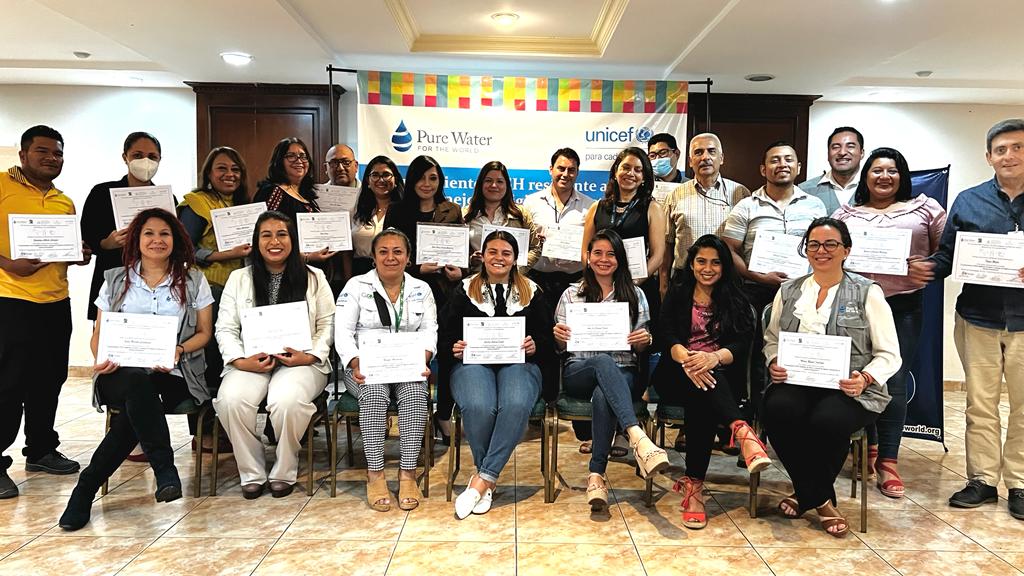 In early December, the PWW team in Honduras, in collaboration with UNICEF, conducted a workshop with the Honduras Ministry of Education focused on “Climate-resilient WASH Guidelines and Menstrual Hygiene Management in Schools.”
In early December, the PWW team in Honduras, in collaboration with UNICEF, conducted a workshop with the Honduras Ministry of Education focused on “Climate-resilient WASH Guidelines and Menstrual Hygiene Management in Schools.”
The primary objective of the workshop was to analyze recommendations for the establishment of climate-resilient WASH infrastructure in Honduran schools, which includes a gender-based approach in order to facilitate and support healthy menstrual hygiene management.
The workshop was organized by PWW and funded by UNICEF Honduras. Representatives from other NGOs, including World Vision, ADRA International, Save the Children, and GOAL, participated in the workshop. A variety of Honduran governmental secretaries, including the Secretary of Education, DECOAS (Department of Communication, Environment and Health), DIGECEBI (General Directorate of School Buildings and Real Estate Assets), Mi Ambiente (Honduran government office responsible for public and private institutional coordination in environmental), CONASA (National Council of Water and Sanitation), USAID, Secretary of Health, BID (Inter-American Development Bank) and BCIE (Central American Bank for Economic Integration), also participated in the two-day workshop.
PWW, UNICEF, ADRA International, Save the Children, and GOAL, who have been collaborating since 2020 to deliver the content of this workshop in schools, presented the results of the initial implementation of Climate-resilient WASH Guidelines and Menstrual Hygiene Management in Honduran schools.
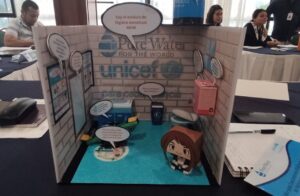 UNICEF WASH Officer, Carolina Carias, presented the 3-Star approach for WASH-in-Schools, and workshop participants formed small groups, each focused on different topics (water, sanitation, hygiene and sustainability). The groups worked together to propose ideas on climate-resilient infrastructure and presented their results.
UNICEF WASH Officer, Carolina Carias, presented the 3-Star approach for WASH-in-Schools, and workshop participants formed small groups, each focused on different topics (water, sanitation, hygiene and sustainability). The groups worked together to propose ideas on climate-resilient infrastructure and presented their results.
During the two-day presentation the Honduras Secretary of Education also presented a different type of WASH infrastructure, including a blue print for a Menstrual Hygiene Module (pictured right).
At the end of the workshop, participants received certificates of completion.
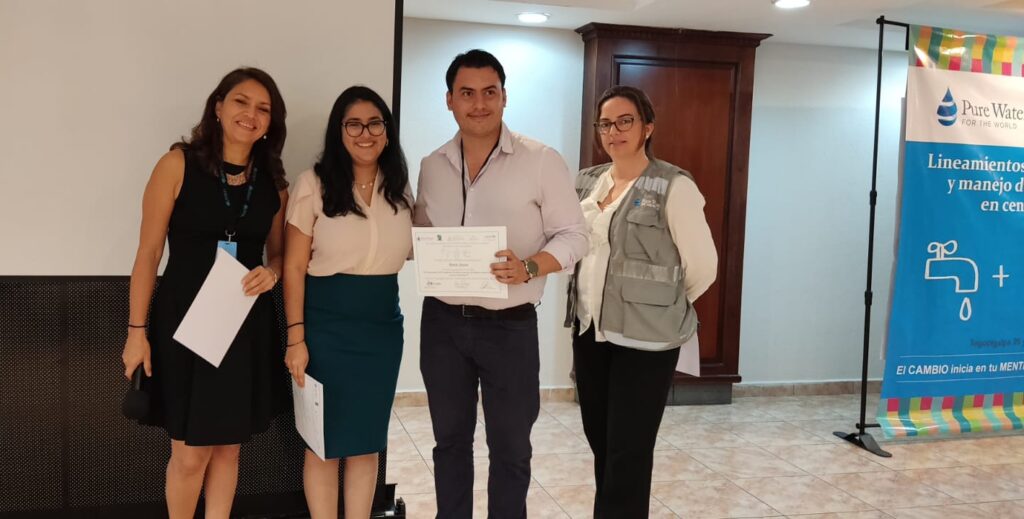
(Pictured: Carolina Carias, UNICEF Honduras; Valeria Delgado, DECOAS; Roberto Zapata, DIGECEBI; Maria Inestroza, PWW Country Director, Honduras)
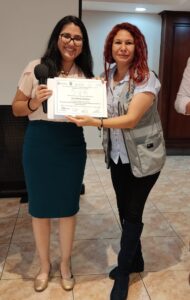
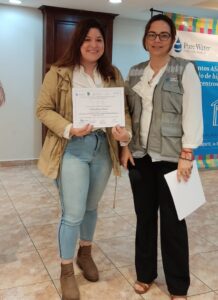
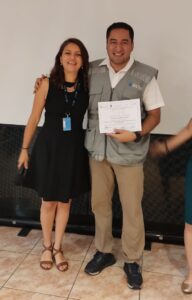
(Pictured left: Valeria Delgado, DECOAS with PWW Training and Consulting Facilitator, Xenia Castellanos. Pictured middle: Paulette Herrera with Maria Inestroza, PWW Honduras Country Director. Pictured right: Carolina Carias, UNICEF Honduras and Oscar Andino, PWW Program Manager)
Summary of PWW’s initial integration of Climate-resilient WASH Guidelines and Menstrual Hygiene Management in Honduran Schools:
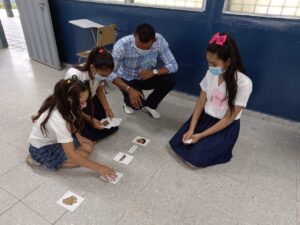 2021: PWW reached 21 schools with climate-resilent WASH Infrastructure support (adapting existing water, sanitation and hygiene school infrastructure to be climate-resilient and support menstrual hygiene management) in seven (7) municipalities. This work initially benefits the 2,214 boys and 2,281 girls in these schools, as well as future generations of students. Additionally, 48 schools received training on Climate-resilent WASH Guidelines, which reached another 11,366 students.
2021: PWW reached 21 schools with climate-resilent WASH Infrastructure support (adapting existing water, sanitation and hygiene school infrastructure to be climate-resilient and support menstrual hygiene management) in seven (7) municipalities. This work initially benefits the 2,214 boys and 2,281 girls in these schools, as well as future generations of students. Additionally, 48 schools received training on Climate-resilent WASH Guidelines, which reached another 11,366 students.
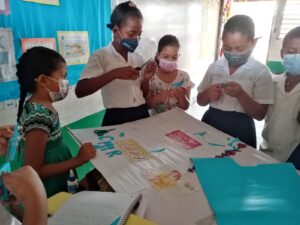 2022: PWW has delivered training in 14 new schools, reaching 12,409 students, and has followed-up with schools from the previous year. PWW is also installing the menstrual hygiene management modules in 44 of the 48 schools (that participated in the training in 2021). PWW is also working with these schools to update WASH infrastructure, incorporating new climate-resilient standards.
2022: PWW has delivered training in 14 new schools, reaching 12,409 students, and has followed-up with schools from the previous year. PWW is also installing the menstrual hygiene management modules in 44 of the 48 schools (that participated in the training in 2021). PWW is also working with these schools to update WASH infrastructure, incorporating new climate-resilient standards.
